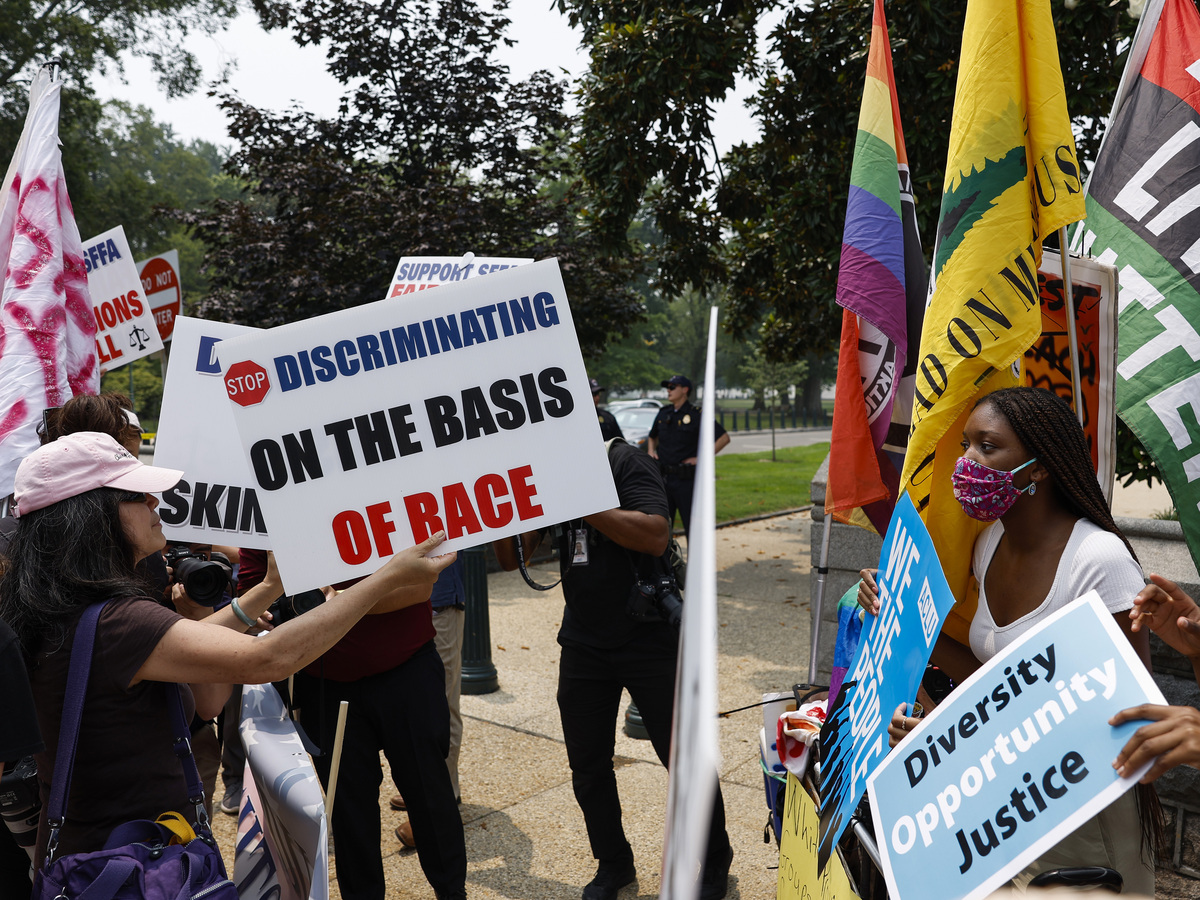
Protesters for and against affirmative active demonstrate on Capitol Hill on Thursday in Washington, DC. Anna Moneymaker/Getty Images hide caption

Protesters for and against affirmative active demonstrate on Capitol Hill on Thursday in Washington, DC.
Anna Moneymaker/Getty ImagesThe Supreme Court effectively killed race-conscious admissions in higher education on Thursday.
In two cases, the court decided that the admissions policies of Harvard and the University of North Carolina - both of which consider race - are unconstitutional, ruling the policies violated the equal protection clause of the 14th Amendment.
The decisions reversed decades of precedent upheld over the years by narrow court majorities that included Republican-appointed justices. The rulings could end the ability of colleges and universities, public and private, to do what most say they still need to do: consider race as one of many factors in deciding which of the qualified applicants is to be admitted.
NPR's Legal Affairs Correspondent Nina Totenberg reports on the ruling and what it means for college admissions. NPR's Adrian Florido looks at how colleges and universities in California adjusted their admissions policies when the state banned affirmative action 25 years ago.
Email us at
This episode was produced by Connor Donevan, Alejandra Marquez Janse, Jason Fuller and Lexie Schapitl. It was edited by Adam Raney, Denice Rios and Krishnadev Calamur. Our executive producer is Sami Yenigun.

 Live Radio
Live Radio